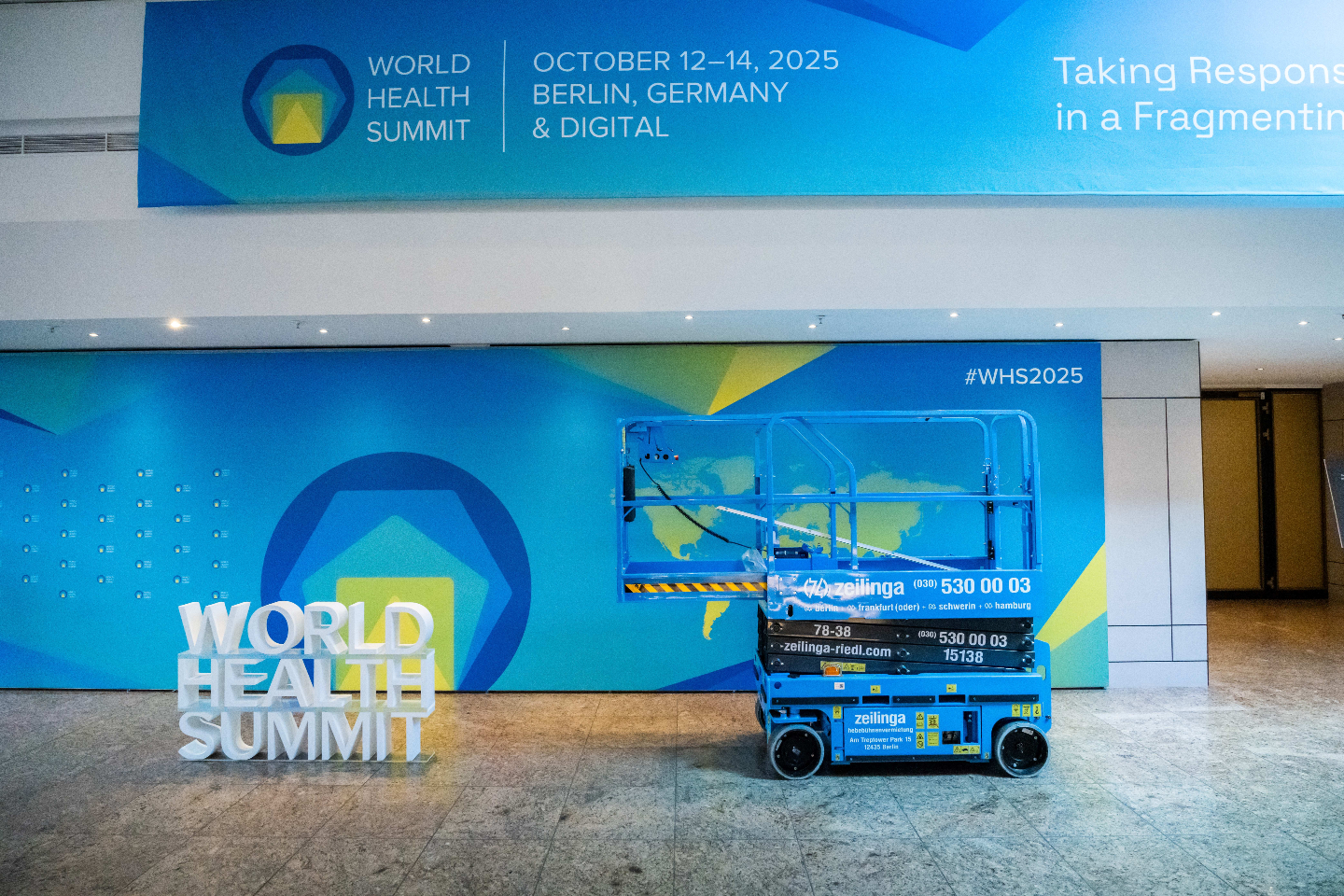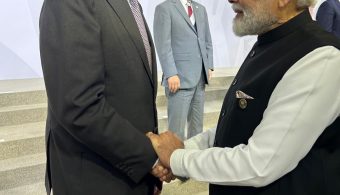Photo Credit: x.com/WorldHealthSmt/
At the 2025 World Health Summit in Berlin, global health leaders confronted growing funding challenges while India pressed its case on non-communicable disease control and health systems strengthening. With multilateral aid under strain, the emphasis shifted to building more resilient, locally led systems.
Summit Opens Under Strain: Theme and Stakes
The World Health Summit 2025, held from October 12–14 in Berlin, convened more than 4,000 participants in person and tens of thousands online to debate pathways for the future of global health. Operating under the theme “Taking Responsibility for Health in a Fragmenting World,” the summit framed health cooperation against the backdrop of geopolitical tensions, shrinking budgets, and fragmentation across multilateral systems.
This year’s program featured over 70 sessions on topics such as climate and health, AI in healthcare, global equity, governance, and non-communicable diseases (NCDs). The annual summit serves as a global platform that brings together policymakers, scientists, healthcare experts, civil society and private sector stakeholders to explore science-based and cross-disciplinary solutions.
Germany Pushes for Reduced Aid Dependence
On the second day of the summit, Nina Warken, Germany’s Federal Health Minister, said that the recent funding cuts to global health institutions had made it “painfully clear” that the world must reduce its dependence on external aid. She reiterated that Germany takes its responsibility in global health seriously and that events such as this summit send a strong message that health must remain a global priority.
Warken also emphasized the need to keep health high on the agendas of international platforms such as the G7 and G20, underlining the growing importance of sustainable health financing and governance.
Panel Deliberations: Finance, Innovation, and Local Ownership
A high-level panel on financing brought together global experts including Sania Nishtar, CEO of Gavi; Peter Sands, Executive Director of the Global Fund; and Kieran Daly of the Gates Foundation. The discussion focused on how innovative financing models could help countries build self-sustaining health systems amid shrinking fiscal spaces.
Dr Jeremy Farrar, Assistant Director-General at the World Health Organization (WHO), called this moment an inflection point for global health and urged participants to look forward with optimism. He noted that creative and bold solutions would be key to driving progress in the post-pandemic era.
Katie Dain, CEO of the NCD Alliance, highlighted that platforms like the World Health Summit play a vital role in inspiring governments to strengthen their responses to chronic disease challenges.
The global burden remains immense — non-communicable diseases such as cardiovascular disease, cancer, diabetes, and chronic lung disease claimed an estimated 43 million lives in 2021, including 18 million people under the age of 70.
Germany Commits €1 Billion to Global Health
On October 12, Reem Alabali-Radovan, Germany’s Federal Minister for Economic Cooperation and Development, announced a financial commitment of €1 billion to the Global Fund to fight AIDS, Tuberculosis and Malaria.
Peter Sands of the Global Fund welcomed the pledge, calling it a “once-in-a-generation opportunity” to strengthen health systems and accelerate progress against infectious diseases. He said that innovations such as AI-powered TB detection tools and advanced mosquito control systems exist, but political will and investment are now needed to scale them globally.
India Steps Into the Spotlight
India’s presence at the World Health Summit was notable for its focus on tackling non-communicable diseases. Experts from the Indian Council of Medical Research (ICMR) and other leading institutions shared evidence and approaches aimed at strengthening prevention, early detection, and lifestyle-based interventions.
Dr Sanghamitra Pati, Additional Director-General of ICMR, and Dr Tanvir Kaur, Head of the International Health Division, moderated a session on integrated approaches to managing NCDs.
Dr V. Mohan, Chairman of the Madras Diabetes Research Foundation, referred to the ICMR–INDIAB study, which revealed that over 100 million Indians live with diabetes and another 136 million are pre-diabetic. He stressed the importance of controlling blood sugar, blood pressure, and cholesterol levels through the “ABC” targets, noting that healthier diets and regular exercise could prevent up to half of new Type 2 diabetes cases.
Dr Bharati Kulkarni, Director of the ICMR-National Institute of Nutrition, pointed out that Indian diets have become increasingly high in sugar, fat, and salt, especially in urban areas. She highlighted public initiatives such as Eat Right India, food labeling reforms, and school-based nutrition programs as steps toward reversing this trend.
On hypertension, Dr Manoj Murhekar of the ICMR-National Institute of Epidemiology discussed the success of the India Hypertension Control Initiative (IHCI) and its digital tool, the SIMPLE App, which has tracked over five million patients across 157 districts.
Dr Gautam Sharma, Professor of Cardiology at AIIMS, New Delhi, underlined the therapeutic benefits of yoga in cardiovascular care, citing its role in reducing stress, improving cardiac rehabilitation, and balancing the autonomic nervous system.
Prof Anurag Agrawal of Ashoka University warned of an impending epidemic of Chronic Obstructive Pulmonary Disease (COPD) in India and advocated for digital “vaccines” — app-based behavioral interventions — to encourage healthier living and prevent long-term respiratory decline.
Challenges and Opportunities Ahead
The World Health Summit 2025 underscored a clear shift in the global health landscape. With donor fatigue and tighter budgets, low- and middle-income countries are being urged to strengthen their domestic systems and financing models.
Germany’s renewed commitment of €1 billion to the Global Fund, coupled with its call for fiscal self-reliance, reflects the delicate balance between short-term support and long-term sustainability.
For India, the summit provided an opportunity to showcase its expanding leadership in tackling NCDs and leveraging digital tools for health innovation. As the global dialogue continues, the challenge now lies in translating these discussions into tangible, scalable outcomes that improve lives on the ground.



